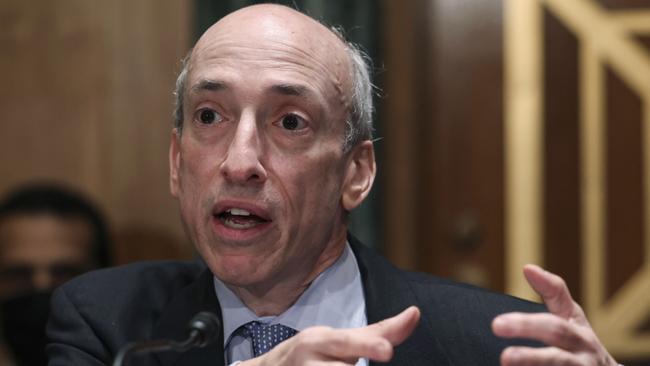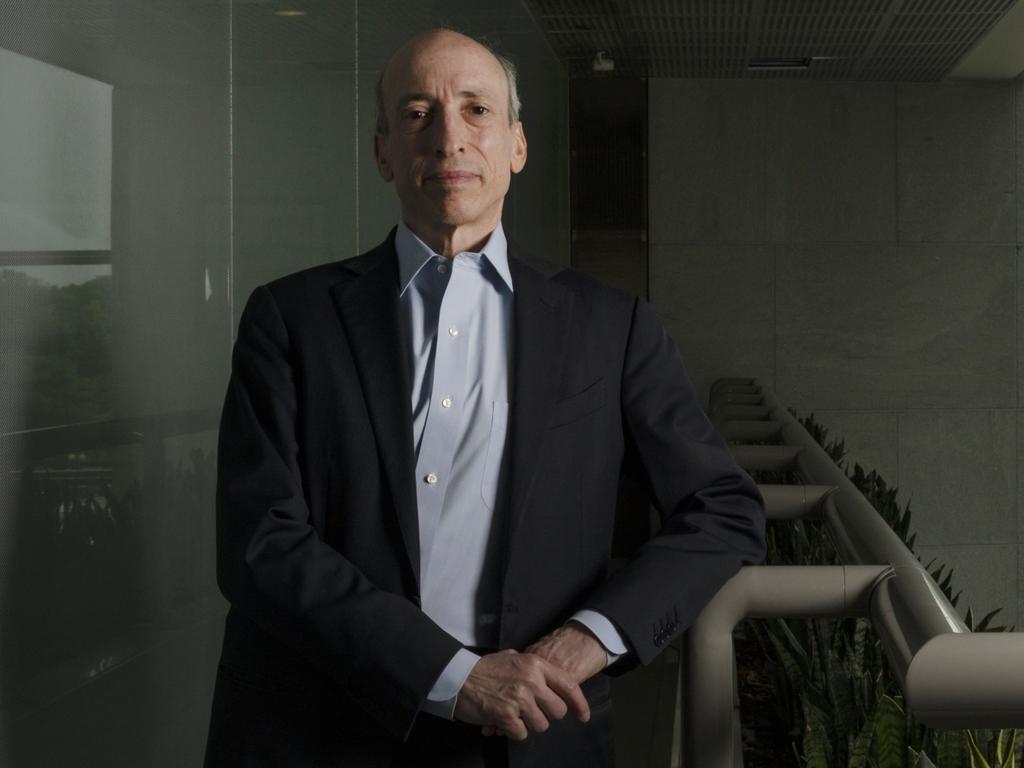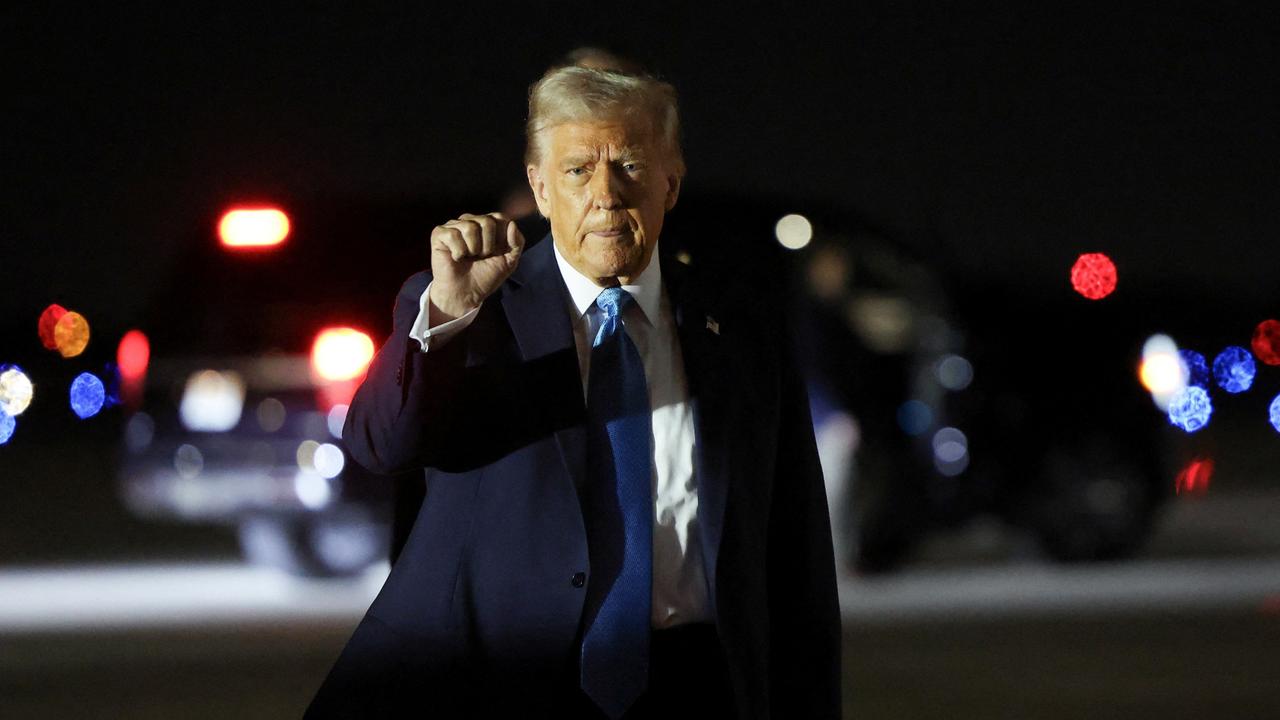SEC floats rules to shore up money markets, curb insider trading
Wall Street regulators moved forward on four plans, advancing far-reaching agenda under Chairman Gary Gensler.

The Securities and Exchange Commission has issued a raft of proposals including measures aimed at shoring up money market funds and curbing executives’ ability to trade their own companies’ stock.
The proposals, some of which surprised Wall Street executives with their scope, indicate that SEC chair Gary Gensler is moving quickly to enact a policy agenda that observers have called its most ambitious in decades.
With a thin majority in Congress, Democrats are leaning on Mr Gensler to advance progressive priorities such as fighting climate change and curbing the power of big business. The SEC’s authority to write rules for asset managers, companies and the stockmarket provides powerful, if sometimes roundabout, tools for achieving such goals.
The proposals “will go a long way toward increasing corporate transparency and accountability”, said Senator Sherrod Brown, the Democrat chair of the Senate Banking Committee, praising enhanced disclosures around stock buybacks.
“The first step to workers getting their fair share is learning just how much corporate executives are spending on themselves.”
Mr Gensler’s agenda reflects political divisions. Three of the four proposals garnered party-line votes from the SEC’s five commissioners. Republicans Hester Peirce and Elad Roisman supported only a plan to tighten rules on how and when corporate insiders can sell their companies’ stocks. The agency is independent of the Biden administration.
Two of the proposals put forward seek to make the financial system more stable by reducing panicked investors’ tendency to flee money market funds and by regulating opaque derivatives known as “swaps”.
The other two rules would seek to enhance fairness and transparency in the stockmarket. They would introduce new restrictions on corporate executives’ trading and heighten disclosure requirements around share buybacks by publicly traded companies.
The new rules for money market mutual funds aim to prevent episodes that occurred during the past two recessions, in 2008 and 2020, when the Federal Reserve was forced to backstop the funds after they were hit with a wave of redemption requests that caused credit markets to seize up.
Money markets are typically used by corporate treasurers, pension funds and millions of individual investors as a safe place to park cash and earn a higher return than they could obtain in a bank account. They provide companies with liquidity for short-term loans, called “commercial paper”, to cover immediate expenses like payroll.
But money market funds aren’t regulated like banks, which must meet minimum capital requirements and offer deposit insurance. Regulators say this makes them more susceptible to runs when markets are under severe stress, creating broader risks to the financial system.
“This is about resiliency,” Mr Gensler said, noting that Americans have roughly $US5 trillion ($7 trillion) invested in money markets. “Though there have been reforms in 2010 and 2014, we found again in 2020 some instability … with the dash for cash.”
The SEC’s proposed changes include a measure called “swing pricing” that firms including BlackRock have warned could destroy a subset of the industry that holds short-term corporate debt and caters to institutional investors. The measure would require these funds to adopt policies for adjusting their share prices by a “swing factor” on days when they have net redemptions. The factor would be determined by transaction costs and the market impact of selling a slice of the fund’s portfolio.
The goal was to protect investors who remained in the fund from dilution by investors who redeemed their shares, Mr Gensler said.
The SEC’s timing caught money market fund managers off guard, said John Tobin, investment chief at Dreyfus Cash Investment Strategies, which oversees $US350bn in money funds. Many didn’t expect to see the new proposed rules until the northern spring, he said.
The swing-pricing proposal was likely to draw universal industry opposition, said Mr Tobin. The rule would create operational challenges and could encourage institutional investors to head for the exits before a fund executes any swing-price decision.
“It’s definitely a shot across the bow,” he said. “This is a watershed moment.”
The SEC also proposed significant restrictions on arrangements known as 10b5-1 plans, by which corporate officers and directors schedule stock trades ahead of time to avoid running foul of insider trading rules. Among other changes, the agency would require executives to wait 120 days before buying or selling their employer’s stock after setting up or modifying the plans.
That proposal follows research suggesting the arrangements are being abused as company leaders cash in at historic levels on their companies’ shares.
“The core issue is that these insiders regularly have material information that the public doesn’t have,” Mr Gensler said. The proposed changes seek to ensure their stock trading was done “in a way that’s fair to the marketplace”.
Commissioners also voted 3-2 along party lines to propose increased disclosures around stock buybacks, which are also hitting records this year.
Justin Baer contributed to this article.
The Wall Street Journal



